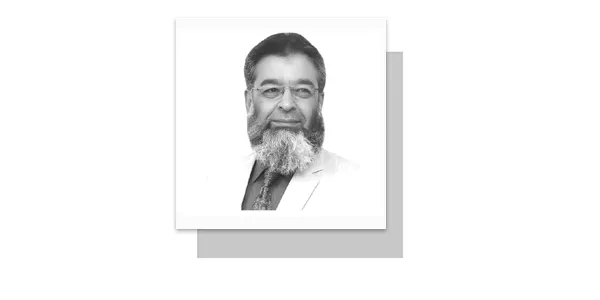IN every mother’s heart lies a unique strength, one that becomes even more pronounced when her child is different from the norm. Pakistan, a society rooted in family values, typically upholds the joint family system. Yet, for mothers of special children, this support system often vanishes when needed most. The challenges begin with the initial diagnosis, which shatters the dreams every parent has for their child. Extended family members often respond with disbelief, denial or even shame. Instead of offering the necessary support, relatives distance themselves, driven by fear, ignorance or stigma attached to disabilities.
Special children possess a pure, selfless love. They rely entirely on their parents’ care and affection, but many parents hesitate to introduce their special children to others or admit them to specialized centres due to societal pressure. A well-known neurosurgeon once met with parents of special children and was moved to tears. He explained that Allah entrusts special children to special parents, revealing that he, too, was the parent of a special child. His tears reflected the deep emotional bond and unique challenges faced by these parents. In Pakistani culture, social appearances and societal expectations weigh heavily. Having a child with special characteristics is often seen as a burden or even a punishment. This mindset isolates the mother further, making her the subject of whispers, pity or blame. Instead of support, relatives often add to her pain, refusing to acknowledge the child or suggesting the mother is at fault.
Caring for a special child requires extraordinary patience and resilience. These children often have complex medical, emotional and educational needs that demand constant attention. In a society where access to quality healthcare and specialized education is limited, the burden falls entirely on the mother. She must navigate an often-ill-equipped healthcare system, facing unqualified doctors and inadequate facilities. Worrying about the child’s future is a constant burden. In a country with weak social security system and scarce disability benefits, the mother lives in perpetual anxiety about what will happen to her child if she can no longer care for them. This anxiety is compounded by the lack of support from relatives, who often show little interest in the child’s well-being.
The financial strain on these mothers is another significant challenge. Raising a special child requires resources that many families do not have. The cost of medical care, therapies and specialized education can be overwhelming. Many mothers are forced to choose between working to provide for their family and staying home to care for their child. The stigma and lack of understanding in society make finding a job that accommodates a special child’s needs nearly impossible, forcing many mothers into financial dependency. Despite these challenges, the mother of a special child in Pakistan perseveres. Her love for her child drives her to fight against the odds, often at great personal cost. The emotional toll is immense, with many mothers suffering from depression and anxiety, yet they have little access to mental healthcare. In a society where mental health is already stigmatized, these mothers’ challenges are often dismissed or ignored. They are expected to bear their burden with a smile, without acknowledgment of the toll it takes on them.
The lack of support from relatives is perhaps the most heartbreaking aspect of their struggle. While friends and neighbours may offer kind words or occasional help, the absence of consistent family support is a wound that never heals. These mothers often find themselves alone in their journey, with no one to share the joys and sorrows of raising a special child. The bond between a mother and her child is unbreakable, but it is one meant to be supported by the family. When that support is absent, the mother is left to carry a burden far too heavy for one person to bear. Even in the face of overwhelming adversity, these mothers continue to fight for their children. They become advocates, demanding better care, education, and a brighter future for their special children. They fight against a society that often sees their child as less than human, doing so with strength that is nothing short of miraculous.
The resilience of these mothers is a testament to the power of love. They teach us that every child, regardless of their abilities, deserves to be loved, cherished, and supported. Their fight is not just for their own children but for all special children in Pakistan, who deserve to be seen, heard, and valued. For this fight to succeed, society, especially family members, must change. They must learn to support, not shun; to love, not judge; and to stand by these mothers, who are doing the most important job in the world. Without this support, the mothers of special children in Pakistan will continue to suffer in silence, their strength unmatched but their pain unacknowledged.
—The writer is contributing columnist, based in Islamabad.










